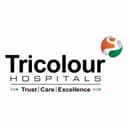Certificate Course in Radiology & Imaging Technology
OR
Prepared by Docthub Courses Team ∣
Last updated on 22 Jul 2024
Overview
The Certificate Course in Radiology & Imaging Technology course is paramedical training program. The program is ideal for science students who want to pursue career as a Radiology Technician and related fields. It gives knowledge, skill and hands-on training for Radiology diagnostic modalities like Digital X-ray, Mammography, CT Scan, MRI, Ultrasonography. The trainees will be having practical work exposure in a Radiological diagnostic set-up under the guidance and mentorship of Consultant Radiologist.

Table of Content
What is Certificate Course in Radiology & Imaging Technology?
A Certificate course in Radiology and Imaging Technology equips you with the knowledge and skills to conduct non-invasive imaging investigations and refer complex cases to a radiologist. It opens doors to a rewarding career in radiology.
Completing this one-year course allows you to gain expertise in this field and pursue a promising career in radiology.
Highlights
- Course Name: Certificate in Radiology and Imaging Technology
- Course Type: Certificate
- Course Duration: 6 Months - 1 Year
- Eligibility: 10 + 2 in the Science stream from a recognized board
- Course Fees: ₹40,000 - ₹ 1,00,000
Who should do Certificate Course in Radiology & Imaging Technology?
The Certificate Course in Radiology & Imaging Technology is designed for students interested in medical imaging and working as radiology technicians in the healthcare field.
It is a suitable choice for those who want to use non-invasive imaging techniques to diagnose and examine diseases, assisting medical professionals in accurate diagnoses and patient care.
If you are looking for a specialized and rewarding career in radiology and imaging technology, this program could be the right fit for you.
Why study Certificate Course in Radiology & Imaging Technology?
Studying this course offers several advantages such as it helps you learn how to use non-invasive imaging techniques to diagnose diseases and understand human anatomy.
This program opens doors to a rewarding career as a radiology technician in the healthcare field, where you can contribute to patient care.
With expert instructors and interactive technology, you can gain valuable knowledge in medical imaging. Overall, this certificate provides valuable expertise and opportunities for personal and professional growth in radiology and imaging technology.
Admission Process
The admission process for the Certificate Course in Radiology & Imaging Technology may differ from one college to another.
Generally, you need to have completed 10+2 in the Science stream from a recognized board to be eligible. To apply, you must fill out the application form provided by the college.
Some colleges might conduct an entrance exam or select students based on merit. After reviewing the applications, selected students are offered admission into the program. It's crucial to follow the college's admission guidelines to ensure a smooth and successful process.
Certificate in Radiology and Imaging Technology Syllabus
- Human Anatomy & Physiology, Radiology Physics
- General Physics, Radiation Physics & Physics of Diagnostic Radiology
- X-Ray Machines & Accessories, Maintenance
- X-ray Film / Image processing Techniques (Dark Room Techniques)
Certificate in Radiology and Imaging Technology Scope
The scope of a Certificate course in Radiology is expanding rapidly due to advancements in imaging technology, creating more job opportunities. Students learn about state-of-the-art scanning technologies and gain practical experience. As the medical field progresses, the demand for qualified radiographers is high, offering rewarding careers in government or private hospitals, health centers, and diagnostic facilities. Graduates can also explore research opportunities.
The profession of Radiology has a bright future with various employment options in hospitals, nursing homes, public health centers, and the research sector. Graduates can specialize in interventional or diagnostic radiology, leading to successful careers as hospital administrators or chief technologists with lucrative opportunities.
Career opportunities after Certificate Course in Radiology & Imaging Technology
| Job Roles | Job Description |
| Radiology Technician | Perform medical imaging exams using various techniques to diagnose diseases and conditions. Interpret results and collaborate with doctors to recommend treatment options. Work in hospitals or diagnostic centers, ensuring equipment is well-maintained and patients are prepared for procedures. |
| Radiology Administrator | Oversee and manage radiology departments in hospitals or healthcare facilities. Coordinate staff schedules, manage budgets, and ensure efficient operations. Handle administrative tasks and collaborate with other departments to optimize patient care. |
| Diagnostic Imaging Specialist | Specializes in a specific area of diagnostic imaging, such as MRI or ultrasound. Become an expert in using advanced imaging equipment and techniques to provide detailed images of the body's internal structures. Work closely with medical teams to assist in accurate diagnoses and treatment planning for patients. |
Salary
Graduates with a Certificate in Radiology and Imaging Technology can expect a salary range of ₹0.2 Lakhs to ₹4.5 Lakhs in India, with an average annual salary of ₹2.5 Lakhs.
Explore colleges for this course
Quick Go Links

Explore this course by location..
Related Job Roles
Related Job Vacancies
View All 52 Jobs

FAQS
What is Radiology and imaging technology?
Radiology and imaging technology involve the use of various medical imaging techniques to diagnose and study diseases and conditions within the human body.
Which is better B Pharma or B.Sc radiology?
The choice between B Pharma and B.Sc radiology depends on the student’s interests and career goals, with B Pharma focusing on pharmaceuticals and B.Sc radiology emphasizing medical imaging and diagnostics.
Which is better Physiotherapy or BSc radiology?
Both Physiotherapy and BSc Radiology are excellent career options, each offering unique opportunities to make a positive impact in the healthcare field. The choice between the two ultimately depends on students' interests, strengths, and career goals.
Is B.Sc radiology better than B.Sc nursing?
Both B.Sc Radiology and B.Sc Nursing have distinct work areas and the choice always depends on your preferences and career interests.
Related Course titles

Qualifications
12th Science PCB
Related Specialty
Radiology Technology







